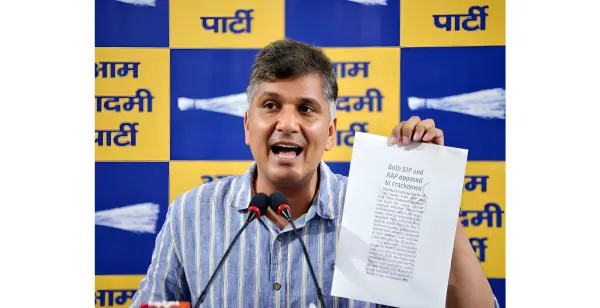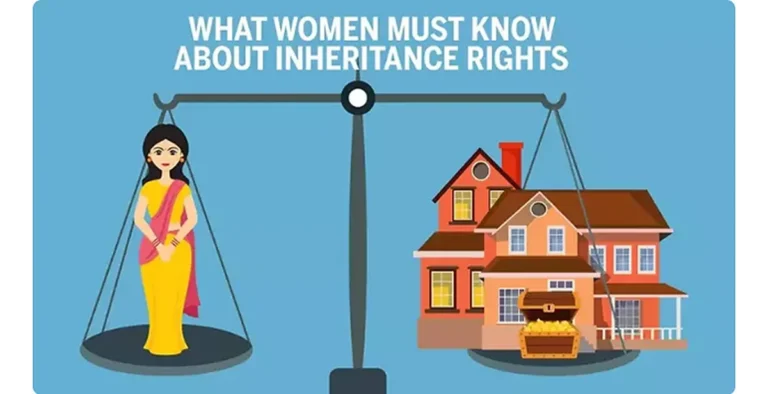
ED Raids AAP’s Saurabh Bharadwaj in Hospital Construction Scam; Party Calls It Diversionary Move
New Delhi, August 26, 2025: The political climate in the national capital witnessed fresh turbulence on Tuesday as the Enforcement Directorate (ED) carried out search operations at 13 locations across Delhi-NCR, including the residence of Aam Aadmi Party (AAP) Delhi unit president and former Health Minister Saurabh Bharadwaj. The raids are part of an ongoing money laundering probe linked to alleged irregularities in the construction of hospitals.
According to the ED, the searches were conducted under provisions of the Prevention of Money Laundering Act (PMLA), 2002, following material collected by Delhi’s Anti-Corruption Branch (ACB). The agency stated that evidence pointed towards large-scale corruption, unjustified cost escalations, and possible diversion of funds in projects aimed at expanding healthcare infrastructure in the capital.
What the Authorities Say
The investigation originates from a case registered by the ACB in June this year against Bharadwaj and former Health Minister Satyendar Jain. The ACB alleged that multiple hospital projects saw suspicious increases in costs, unauthorized construction, and delays that led to a massive financial burden on public funds.
As per ACB records, 24 hospital projects—11 new (greenfield) and 13 upgrades (brownfield)—were sanctioned in 2018–19 with an estimated budget of ₹5,590 crore. However, none of the projects were completed within their stipulated timeline, and many witnessed cost escalations running into hundreds of crores.
Officials added that the delays not only affected infrastructure delivery but also raised questions about governance and financial transparency in Delhi’s health sector. The ACB’s case, later shared with the ED, forms the backbone of the ongoing money laundering investigation.
Political Reactions: AAP Strikes Back
The raids immediately sparked strong political reactions. AAP leaders accused the ruling Bharatiya Janata Party (BJP) of orchestrating the raids to divert public attention from the controversy surrounding Prime Minister Narendra Modi’s academic qualifications.
Former Deputy Chief Minister Manish Sisodia described the case as “false and fabricated,” alleging that investigative agencies were being used as political weapons. “Whenever the Modi government faces uncomfortable questions, agencies like the ED are sent after opposition leaders,” he said.
Senior AAP leader Atishi also questioned the timing of the raids, pointing out that Bharadwaj was not even a minister when many of the projects under scrutiny were approved. “This proves the case is baseless and politically motivated,” she wrote on social media platform X.
Chief Minister Arvind Kejriwal echoed the sentiment, branding the searches as “BJP raids.” He asserted that no party in independent India’s history had been “targeted as aggressively” as AAP and vowed that the party would continue to fight against what it views as a misuse of central agencies.
BJP Welcomes the Action
On the other hand, the BJP welcomed the ED’s move. Delhi BJP President Virendra Sachdeva said the raids validated the party’s long-standing claims of mismanagement and corruption in Delhi’s governance. “For years, we have maintained that the AAP government has looted Delhi in the name of development. The ED’s action only strengthens our allegations,” he said.
The BJP’s stance has further intensified the political confrontation in Delhi, setting the stage for what could be a prolonged legal and political battle.
How the Case Began
The roots of the controversy go back to August 2024, when BJP leader and then-MLA Vijender Gupta filed a formal complaint with the ACB. The complaint highlighted alleged irregularities, including inflated costs, slow progress, and suspected diversion of funds in hospital construction projects.
In June 2025, Delhi’s Lieutenant Governor approved an inquiry under the Prevention of Corruption Act, following which the ACB filed a case against both Bharadwaj and Jain. Soon after, the ED took cognizance of the matter and initiated its own investigation under the PMLA.
The current raids, therefore, are part of a broader attempt to track the money trail and identify whether public funds earmarked for health infrastructure were siphoned off through private contractors or shell companies.
What’s Next?
The ED has indicated that the searches will continue until all financial and documentary evidence is collected. Officials said they are focusing on contractors involved in the projects, office records, and possible links to money laundering networks.
Legal proceedings under the PMLA are expected to follow, depending on the findings. If the allegations are substantiated, both former ministers and several private entities could face prosecution.
On the political front, AAP is likely to challenge both the procedure and the substance of the investigation in court. With Delhi assembly elections approaching in the next year, the case is expected to dominate political narratives in the capital.
A High-Stakes Battle Ahead
The issue has become more than just a legal case—it is rapidly evolving into a political flashpoint between AAP and BJP. While the ED frames the raids as part of a lawful investigation into alleged corruption, AAP views them as an attack on the party’s credibility and an attempt to weaken its standing before upcoming polls.
Observers believe the outcome of this case will have wide-ranging implications, not only for the careers of leaders like Bharadwaj and Jain but also for the broader debate on governance, transparency, and the independence of investigative agencies in India.







